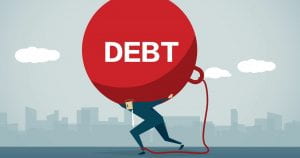
(Logo of Hippopotamus Party of Canada)
Did you know Canada is ranked the best country in the world? With political and economic stability, public safety, and a low employment rate, Canadians can enjoy quality of life and freedom. We have a chance of a life time to become the global leader. This doesn’t mean we don’t have issues to solve to get there, few examples are:
Housing Affordability
Housing price is a significant issue in Canada. In fact, house price had grown faster than income over years; An Oxford report discovered that house is 30% more expensive than an average income citizen can afford. Moreover, Canada has the world’s second highest housing risk. Housing issues affect many of our citizens today. This must be solved and not be passed down to future generations
(Picture Source: Rocketmortgage )
Taxes
In the recent highest tax country survey, Canada ranked #9 globally. As a result of changes to Canada’s personal income tax system, the combined federal and provincial top personal income tax rate has increase in every province since 2009. These increase have significant consequences, hindering economic growth and prosperity.

(Picture Source: Herefordgroup)
National Debt
In total, National debt in 2019 reach up to 2.4 trillion. The consequence of growing national debt is well summarized in this article:
– Lower national savings and income
– Higher interest payments, leading to large tax hikes and spending cuts
– Decrease ability for government to respond to problems(such as wars, financial crisis or natural disasters)
– Greater risk of a fiscal crisis

(Picture Source: Here)
What Makes Hippopotamus Party of Canada Unique?
Unlike all other parties, we are founded by a group of teenagers who are interested in changing our country for a brighter future.
A Hippopotamus government will:
– Decrease house price by 50% within 4 years.
– Decrease taxes by 15% so you and your family can have more money to spend on family, child education, cars, and more.
– Minimize and cut national debt
– Bring prosperity through developments of new industry
– Push back against COVID crisis by creating more job opportunities
Our plans
Housing Issue
Housing crisis is continuously growing and we have a solution. The reason house is so expensive is because house demands is higher than supplies. To change that situation, we need better technologies that allows us to build houses fast and safe at the same time. The Hippopotamus Party will introduce innovative technologies like 3D printed homes to fundamentally cut housing crisis.
 (Image source: Future.ca)
(Image source: Future.ca)
Tax
We want every Canadian citizen to have financial freedom, so high tax is a problem. Especially during paramedics, we understand many people lost their jobs. The current tax rate is higher than needed, so we will decrease the tax rate so more money can go into your pocket. Along with that, we will to create more job opportunities and push back covid crisis so your life is back on track.

(Picture Source: Siteselction.com)
National Debt
We promise to pay off national debt. To pay off national debt, we will:
– We will allow oil/ gas industry to grow. Although we understand the importance of a healthy environment, but we believe a more qualified life for all Canadian citizens is more important. We believe through the growth of oil and gas industry; it will bring prosperity to our country.
– We will cut social service to save money and use the money to pay it off. Even though could be a pain to cut off some social services, with all the consequences of national debt in mind, it is obviously worth doing

(Picture Source: Promarket)
Why Should you choose us
We know we are young but we believe we can change the world.
The Hippopotamus Party is new Choice
The Hippopotamus Party is new Hope
The Hippopotamus Party is new Sovereignty
To join us, you can contact us through email or comment down below.
How this Relate to My Previous Post?
In the world we live in, there are many issues we need to solve. In the process, it unveils the convolutedness and complexity these issue possess
Learn More About Hippopotamus Party









